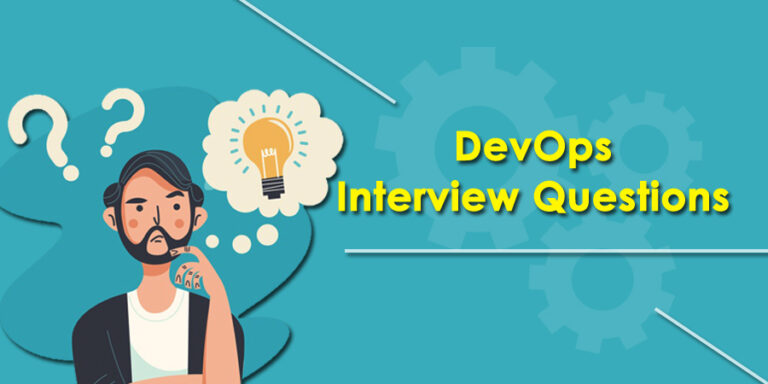Devops is a synergic combination of development and Operations. Over the past decade, there has been enormous growth in job opportunities in the Devops sector. Especially there has been a significant rise in the number of fresh graduates and young professionals opting for Devops training in Chennai. However, there is huge uncertainty regarding how to prepare for a Devops interview. With all the information overload on the internet, it has become hard to segregate useful information from garbage. In this article, our aim is to give you the most succinct and accurate information on how to crack Devops interviews. We will also introduce you to the best Devops course in Chennai.
What is Devops?
DevOps is an amalgamation of cultural philosophies, tools, and practices aimed at increasing an organization’s capability to create applications and services at a higher pace by evolving and improving products much faster than other organizations relying on traditional software development and infrastructure management processes. The increased speed enables organizations to serve their customers better and compete more effectively in the market.”
How to Ace Devops Interview?
While looking for good Devops Training, look if the following important skills are covered in the course to excel in your Devops job interview afterward.
1. Necessary programming skills to work with the development and deployment of software in Devops.
2. A basic understanding of version control systems like Git, GitHub, and Gitlab for developers to share their codes and save backups of software.
3. A basic level understanding of Linux, general OS concepts, and knowledge of major OS concepts such as I/O Management, Process Management, etc.
4. Knowledge of Software Configuration & Deployment, especially of cluster management software tools like Puppet or Docker and containerization for effective deployment functioning.
5. Infrastructure as Code tools such as Azure Resource Manager, Terraform, SaltStacklets, etc., to manage your IT infrastructure using the configuration files.
6. The understanding of Continuous Integration/Continuous Delivery (CI/CD) tools such as Jenkins, CircleCI, GitLab, etc.
7. Knowledge of networking and security concepts to manage the IT workflow.
8. Source code management or configuration & deployment management tools like Git, Docker, Chef, Puppet, Ansible, etc.
9. Cloud service concepts such as Cloud Service Models, Cloud Formation & Architecture, Virtualization, and Cloud Computing, Deployment Models, etc.
10. Various soft skills like Communication, Time Management, Leadership skill, etc.
Sample Devops Interview Questions
Along with attending a Devops training in Chennai, it is important to go through the most commonly asked Devos interview questions. Here are a few sample Devops interview questions for your reference.
1. What is the need for Devops?
A. Devops is a philosophy and practice that emerged automatically because of the specific needs in the market. It is not something someone invented and is trying to fit into the market. These days, companies are trying to see if small features can be transported to their customers through a series of release trains, Instead of releasing big sets of features. This offers several advantages like quick customer feedback, better quality software, etc. This will, in turn, lead to high customer satisfaction. However, to achieve this, companies must:
- Increase deployment frequency
- Reduce the failure rate of new releases
- Reduce the lead time between fixes
- Quicken the mean recovery time in the event of a software crash during release.
Devops emerged as a solution to meet all these requirements and achieve seamless software delivery. Companies like Google and Amazon have incorporated Devops methodology and are successfully executing even thousands of code deployments per day with top-notch quality, reliability, and stability. This was unthinkable just five years ago.
2. Explain the difference between Devops and Agile/SDLC.
A. In simple terms, Agile is a method for quickly and effectively developing software, and Devops is a methodology that focuses on making both software development and deployment faster, safer, and more reliable. Agile methodology can help a group of developers convert an idea in their minds into working software. However, that software will only run on the developer’s laptop/system if it is not put into production and deployment in a safe and simple way. This is where Devops comes into play.
3. Which are the best DevOps tools that you have worked on?
A. Some of the most popular DevOps tools that developers commonly work on are:
- Git is the most popular version Control System tool
- Jenkins is the most commonly used Continuous Integration tool
- Selenium is a popular Continuous Testing tool
- Puppet, Chef, and Ansible are popular Configuration Management and Deployment tools
- Nagios is a popular Continuous Monitoring tool
- Docker is the most widely used Containerization tool
4. How do all the Devops tools work together?
A. To illustrate a generic logical workflow with full automation where all Devops tools work together for seamless delivery.
Step1: Software Developers develop a piece of code, which is often managed by Version Control System tools such as Git etc.
Step 2: Developers then send this code to the Git repository, and all changes made in the code are committed to this Repository as different versions.
Step 3: Jenkins, an integration tool, pulls this code from the Repository with the help of the Git plugin and builds the program using tools like Ant or Maven.
Step 4: After this, configuration management tools like Puppet performs the deployment, after which Jenkins releases this code to the test environment in which tools like Selenium performs testing. The testing environment is also usually provided by the configuration management tool (In this case, Puppet).
Step 5: After testing the code, Jenkins sends it to the production server for deployment. The production server is also generally provisioned & maintained by configuration management tools like Puppet.
Step 6: Once the code is deployed, it is continuously monitored by tools such as Nagios.
Step 7: The testing environment to test the build features is generally provided by Docker.
However, the tools used and the workflow generally varies from organization to organization, depending on their unique requirements.
5. Mention some of the core benefits of DevOps.
A. Employing Devops in your organization has numerous benefits. Some of the most important benefits of these are:
- Quicker development of software and faster deliveries.
- DevOps methodology is more flexible and easily adaptable to changes.
- Devops decreases confusion about the project compared to the previous software development models due to increased product quality.
- It bridges the communication gap between the development and operation teams.
- Increases efficiency of the software development life cycle process through automation of continuous integration and continuous deployment.
- Improves customer satisfaction.
The best online Devops training in Chennai
If you are looking for a one-stop solution that teaches you all the important Devops skills mentioned above and gives ample practical training and industry exposure, then look no further! SImplilearn offers the best Devops training in Chennai – Post Graduate Program in Devops – in partnership with the world-famous California Institute of Technology’s (Caltech) Centre for Technology and Management Education (CTME). The course covers 12 of the most advanced Devops tools and offers 6 industry projects to make you job-ready in just 9 months! So, if you are planning to switch to Devops or start your career in Devops, click on the link in the first paragraph to know more about this amazing course.




















